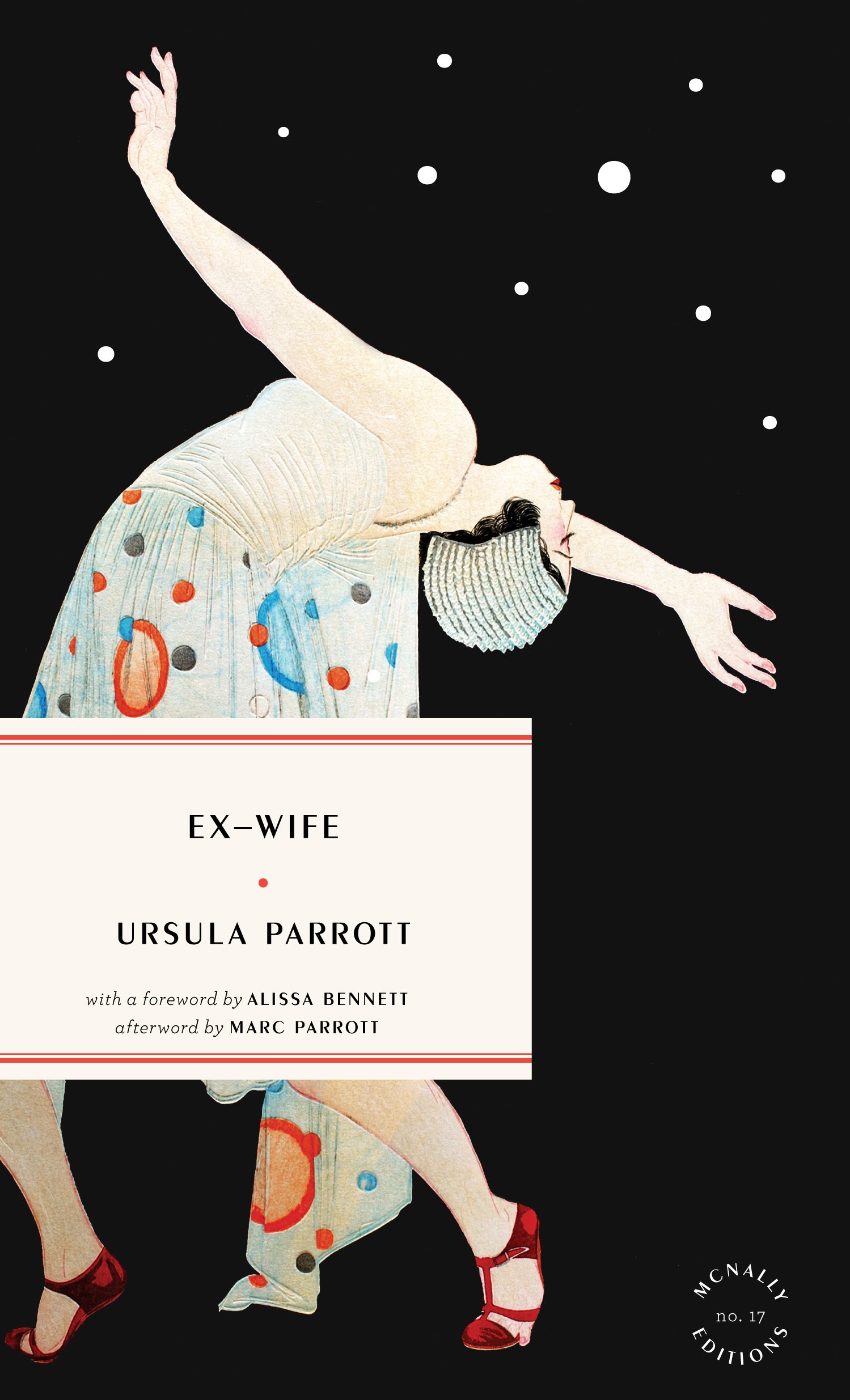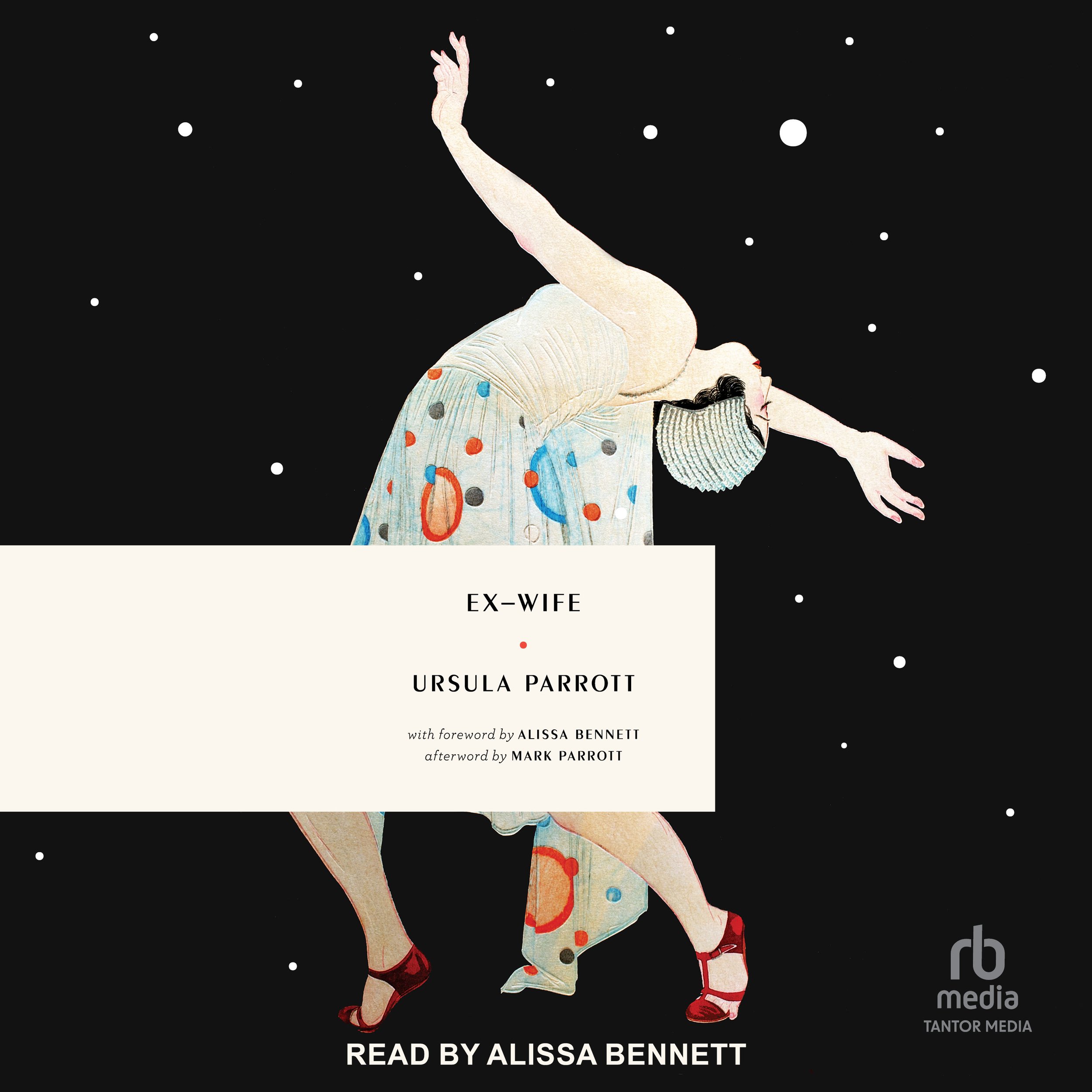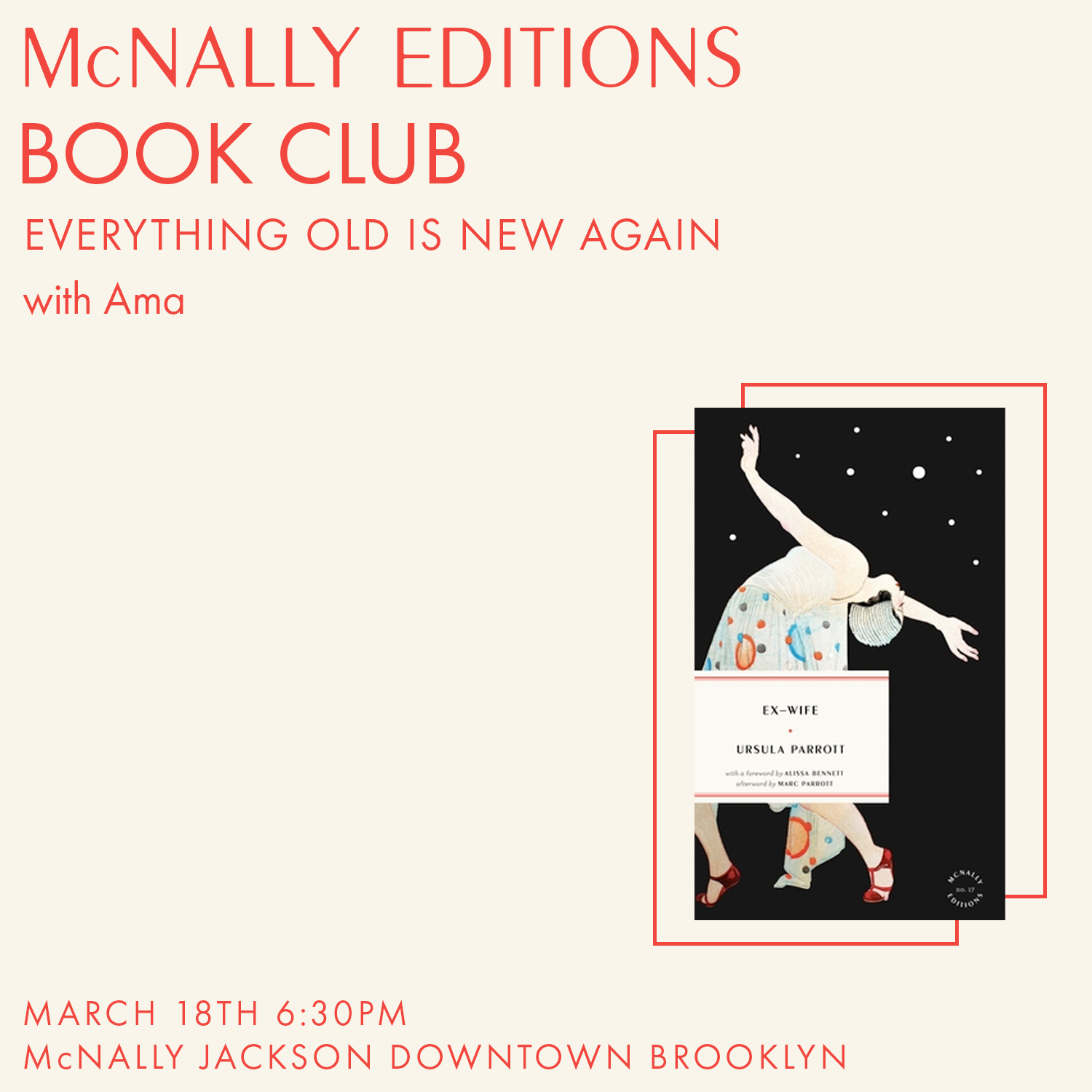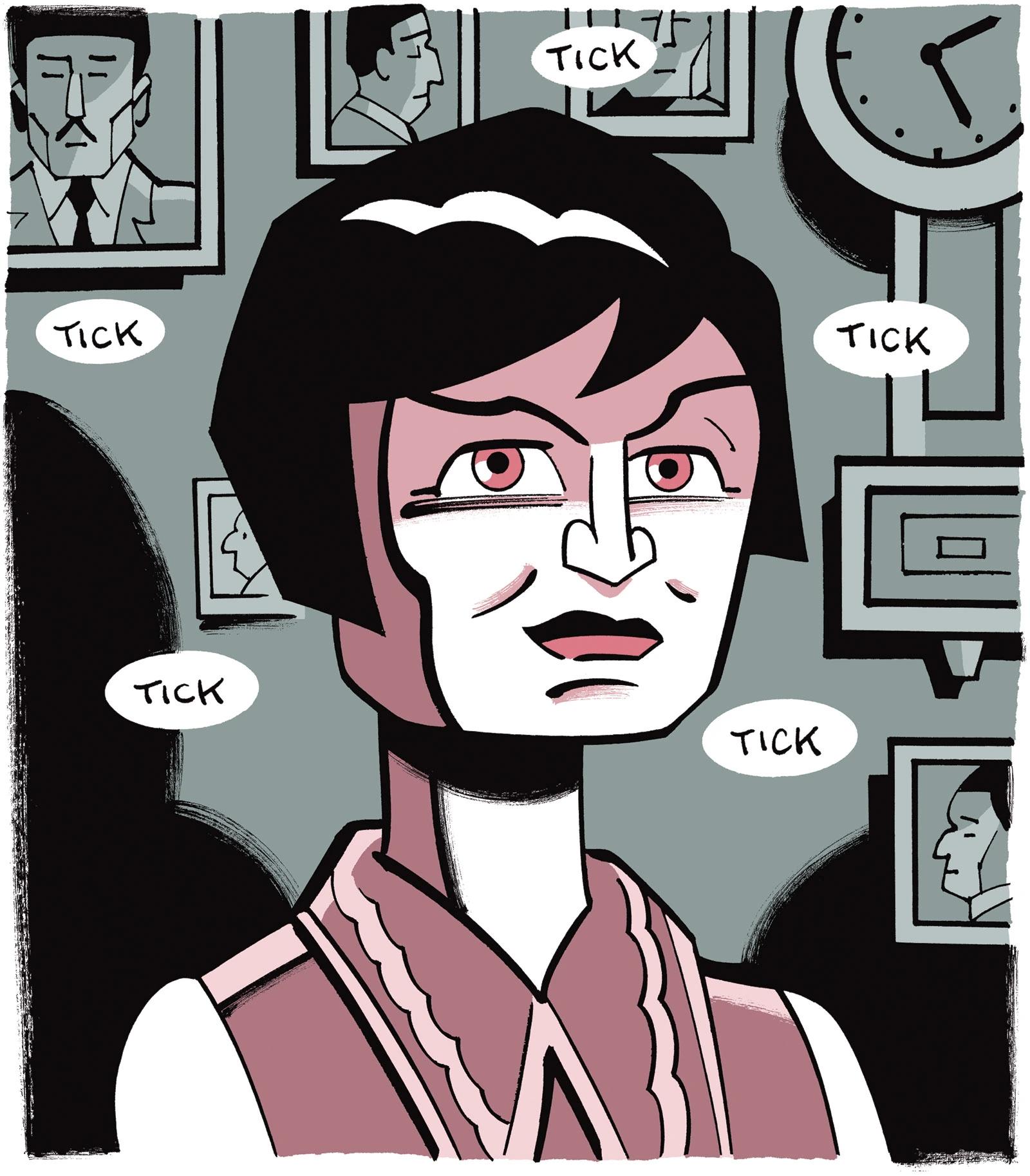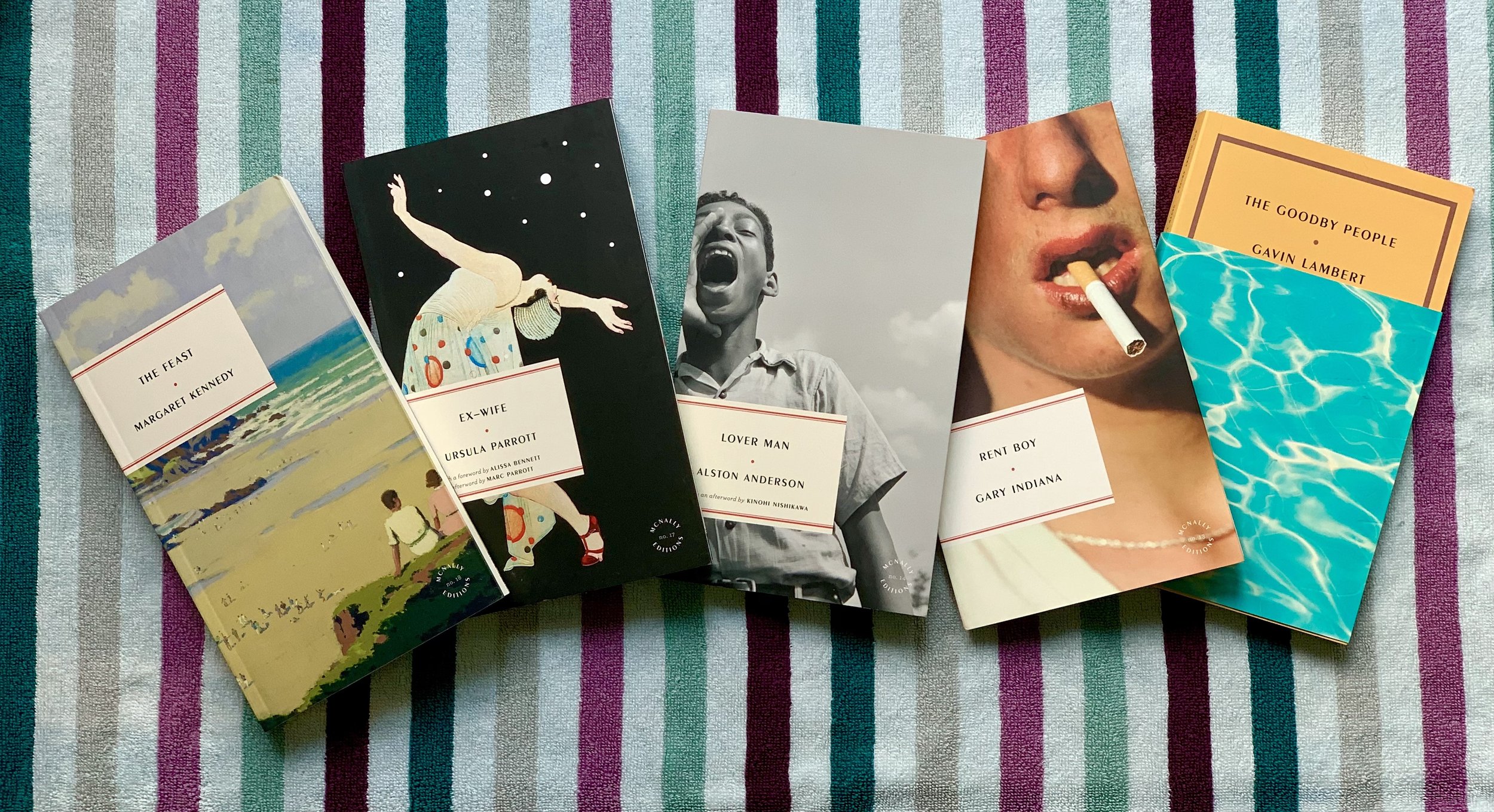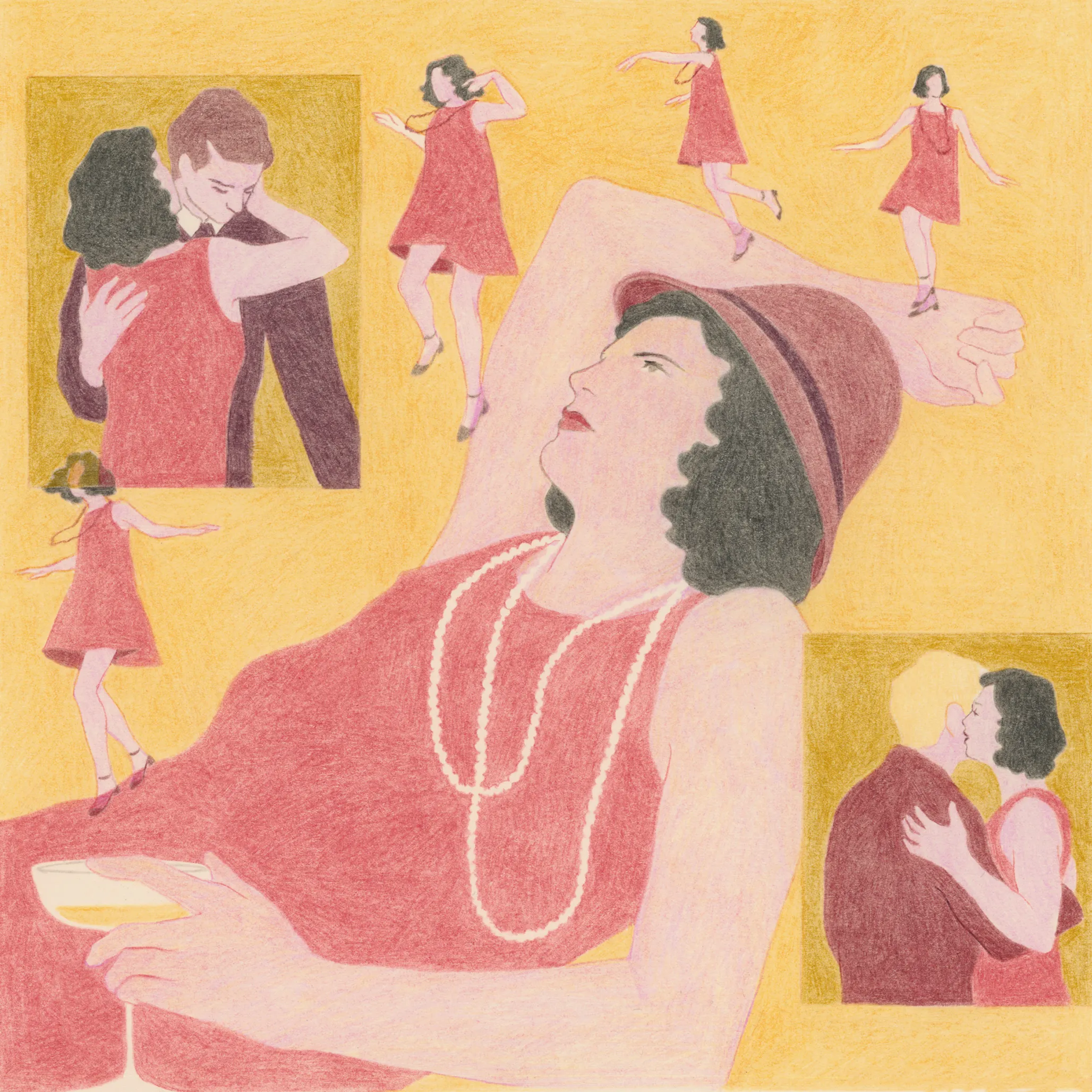Ex-Wife
Ursula Parrott
Foreword by Alissa Bennett
Afterword by Marc Parrott
An instant bestseller when it was published anonymously in 1929, Ex-Wife is the story of a divorce and its aftermath that scandalized the Jazz Age—and still resonates today.
Ursula Parrott
Foreword by Alissa Bennett
Afterword by Marc Parrott
An instant bestseller when it was published anonymously in 1929, Ex-Wife is the story of a divorce and its aftermath that scandalized the Jazz Age—and still resonates today.
Ursula Parrott
Foreword by Alissa Bennett
Afterword by Marc Parrott
An instant bestseller when it was published anonymously in 1929, Ex-Wife is the story of a divorce and its aftermath that scandalized the Jazz Age—and still resonates today.
It’s 1924, and Peter and Patricia have what looks to be a very modern marriage. Both drink. Both smoke. Both work, Patricia as a head copywriter at a major department store. When it comes to sex with other people, both believe in “the honesty policy.” Until they don't. Or, at least, until Peter doesn’t—and a shell-shocked, lovesick Patricia finds herself starting out all over again, but this time around as a different kind of single woman: the ex-wife.
An instant bestseller when it was published anonymously in 1929, Ex-Wife captures the speakeasies, night clubs, and parties that defined Jazz Age New York—alongside the morning-after aspirin and calisthenics, the lunch-hour visits to the gym, the girltalk, and the freedoms and anguish of solitude. It also casts a cool eye on the bedrooms and the doctors’ offices where, despite rising hemlines, the men still call the shots. The result is a unique view of what its author Ursula Parrott called “the era of the one-night stand.”
“Precociously aphoristic and coolly unsentimental, the debut novel Ex-Wife appeared in 1929 to much scandalized acclaim . . . Like Fitzgerald but from a woman’s perspective, Parrott examined the fraying social fabric in the aftermath of World War I . . . Ex-Wife is a sharply observed, intimate account of a failed marriage, several failed love affairs, an abortion, numerous alcoholic interludes and one-night stands . . . At its most entertaining Ex-Wife is a Broadway play in novel form, with briskly clever dialogue tending toward the comic-aphoristic, as if Dorothy Parker, Noël Coward, and Oscar Wilde had collaborated to examine the war between the sexes in the post-Victorian era . . . When the women are alone together their rapid-fire one-liners spring from the page.”
—Joyce Carol Oates, New York Review of Books
“I’m tempted to simply type out a list of quotations from this book and call it a day, adding only a ‘BUY IT NOW!’ button at the bottom . . . It’s not the topics that are fresh—sex, love, marriage, infidelity and work have been fiction fodder since novels were born—but the approach, which feels too advanced even for now. How did Ursula Parrott do it? . . . We must conclude that she possessed supernatural gifts of insight, as well as a talent for acid aphorisms and peppery dialogue . . . This edition features a gorgeous introduction by Alissa Bennett . . . Read if you like: Being wicked, shopping, breakfast for dinner, bearing distress with dignity, Elizabeth Jane Howard’s The Cazalet Chronicles.”
—Molly Young, New York Times
“The divorce novel that captured the mores of Jazz Age New York . . . Ursula Parrott’s Ex-Wife caused a sensation when it was published in 1929. At a time in the U.S. when the stigma of divorce was fading, and divorce rates were rising accordingly, Ex-Wife presented readers and critics with a new woman, one who was pursuing new vocational, economic, and romantic freedoms. She spent her days chasing a career, while her nights were a boozy smear of restaurants, speakeasies, and amorous encounters. She was exciting and discomfiting and morally questionable; she was confusing to her suitors, some of whom found her at once repellant and irresistible.”
—Jessica Winters, New Yorker
“[Let us] revel in the surprising freshness of its prose . . . Ex-Wife depicted remarkable erotic freedom . . . The other thing that glows in Ex-Wife, and the biography of its author, is New York City: the lights, the fights, the freedoms, constraints and terrible costs.”
—Alexandra Jacobs, New York Times
“The racy Jazz Age best seller you’ve never heard of . . . Ursula Parrott was accused of promoting a dangerous sexual freedom. In her best-selling novels, the controversial author chronicled ‘life in the era of the one-night stand’ during the twenties and thirties. Parrott’s extraordinary life took her to the heights of literary New York and pre-Code Hollywood, then left her jailed, penniless, and alone. Today, her books are out of print, and her name is all but forgotten . . . Ninety years later, Ex-Wife still carries the ring of truth.”
—Michael LaPointe, Paris Review
“Take one shot of Dorothy Parker and two shots of Dawn Powell, stir briskly, add a sour cherry, and you have the intoxicating Ex-Wife.”
—Finn Murphy, Air Mail, Editor’s Picks
“Ursula Parrott’s cult Jazz Age novel Ex-Wife is more resonant than ever . . . For fans of Edith Wharton and Jean Rhys . . . Ex-Wife is a kindred star. Told with a polished Jazz Age dandyism, Ex-Wife resonates at a subtle but unmissable emotional frequency, which is what makes it feel so contemporary. While reading, I found myself taking screenshots to send to friends of almost every page.”
—Alissa Bennett, AnOther Magazine
“Caught between Victorian sexual mores and the libertinism of interwar Greenwich Village, Patricia brings a gimlet eye to the pervasive misogyny and sexual hypocrisies of her generation . . . Deftly crafted, wryly observed, and thoroughly unsettling . . . Parrott’s Ex-Wife conjures the well-anesthetized hell of this well-heeled young woman’s divorce and remarriage, and in doing so, offers a provokingly infernal twist on the old marriage plot.”
—Jessica Fletcher, The Baffler
“Ex-Wife might have been called something like God’s greatest gift to divorce. The novel’s success did much to popularize the suddenly burgeoning but still novel institution, and the public consciousness hadn’t quite acknowledged the concept—or even the word—of the ‘ex-wife’ until Parrott’s title insisted upon it.”
—Adam Sobsey, Los Angeles Review of Books
“Today, Ex-Wife is every bit as engaging and thought-provoking as it was in 1929. The novel can be read as a period piece about the 1920s, the emergence of flappers and independent career women, but it is also an anatomy of a marriage and a divorce that takes a searing look at a conflicted woman.”
—Carl Rollyson, New York Sun
Pair your McNally Editions hat with a book! Choose from Ursula Parrott’s Ex-Wife, Gary Indiana’s Rent Boy, Grégoire Bouillier’s The Mystery Guest, Kay Dick’s They, Alston Anderson’s Lover Man, Djuna Barnes’ I Am Alien to Life, or Dorothy Parker’s Constant Reader, and get the hat that goes with it—for only $40.
Ursula Parrott (1899-1957) was born Katherine Ursula Towle in Dorchester, Massachusetts. After graduating from Radcliffe College, she became a newspaper reporter in New York and married her fellow journalist Lindesay Marc Parrott. The experience of their divorce helped inspire her first novel, Ex-Wife, which was published anonymously in 1929 and sold 100,000 copies in its first year. Parrott became one of the most successful female writers of the 1930s, adapting several of her bestsellers for the screen, including Strangers May Kiss and Next Time We Live. Her tumultuous private life included three more marriages, rumored liaisons with F. Scott Fitzgerald, Sinclair Lewis, and the jazz guitarist Michael Neely Bryan. She died of cancer in a charity ward in New York, having spent the small fortune she earned with her pen.
© Ryan McGinley
Alissa Bennett is the author of the twice-yearly zine Dead Is Better and co-host, with Lena Dunham, of the podcast “The C-Word.”
Marc Parrott (1923–1988) was the only son of Lindesay Marc Parrott and Ursula Parrott.
Ex-Wife • Paperback ISBN: 9781946022561
May 2, 2023 • McNALLY EDITIONS no. 17
5" x 8.5" • 232 pages • $18.00
eBook ISBN: 9781946022578
